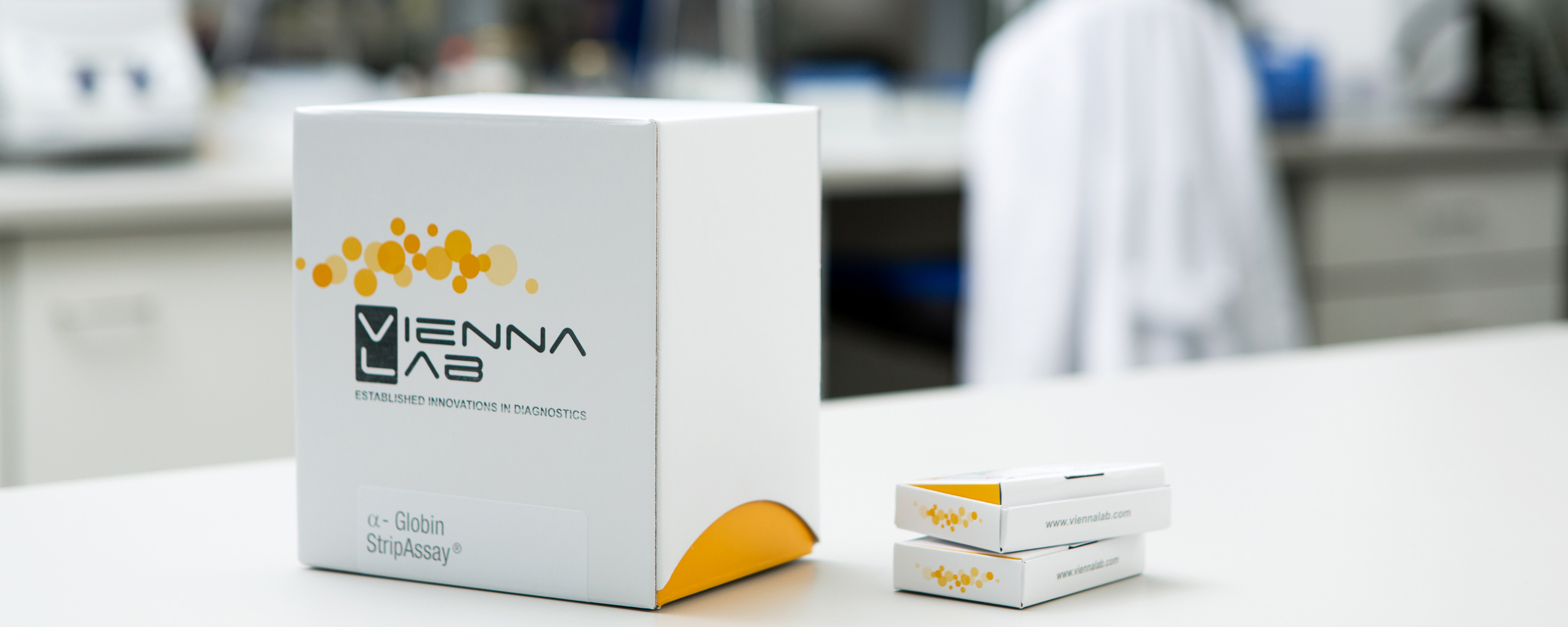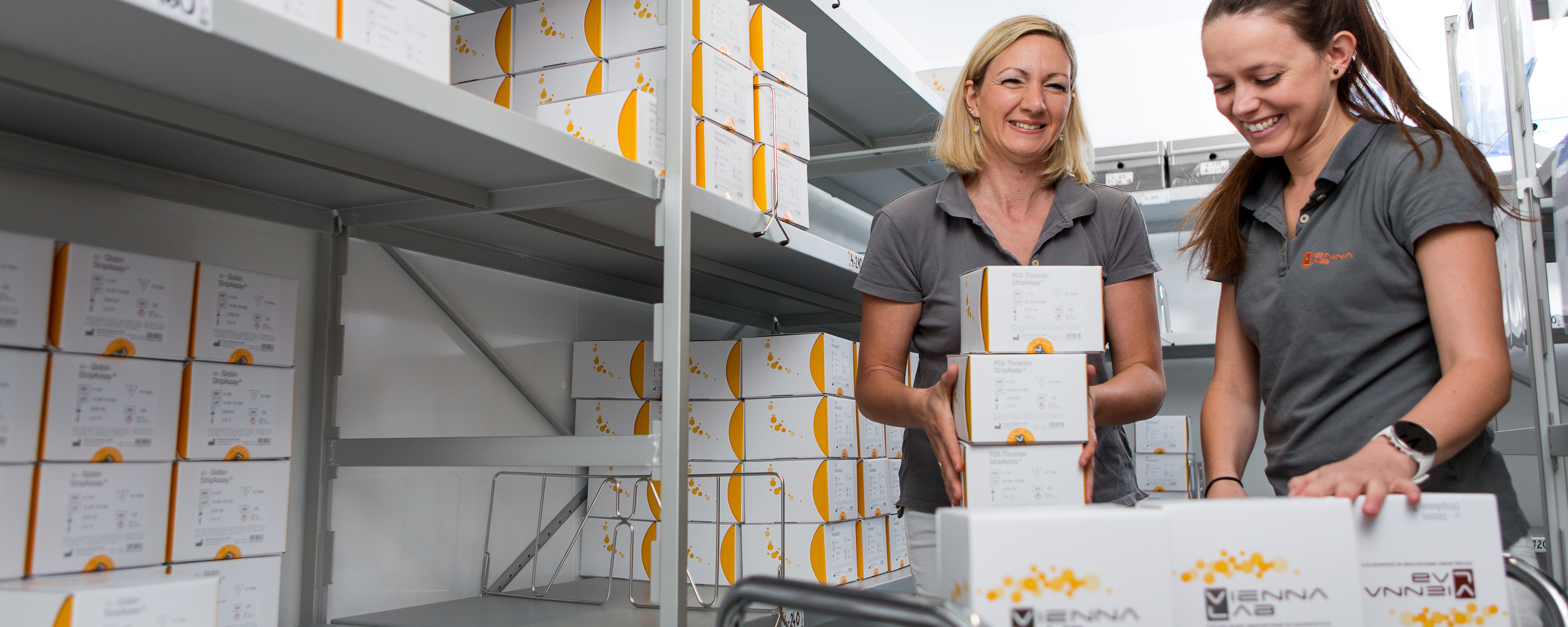Oral anticoagulants like coumarins are commonly prescribed to prevent and treat thromboembolic disorders. Genetic variants have been shown to have clinical impact on the safety and efficacy of oral anticoagulation dosing. ViennaLab PGX-Thrombo assays identify the most relevant genetic variants for appropriate coumarin (e.g. warfarin) dosing.
PGX-Thrombo
- Complications arising from inappropriate dosing of oral anticoagulants are among the most frequently reported adverse events to the US Food and Drug Administration (FDA) and one of the most common reasons for emergency room visits.
- Coumarin inhibits the recycling of vitamin K, an essential co-factor for blood clotting proteins, by blocking VKORC1.
- CYP2C9 plays an important role in the metabolism of coumarins. The decreased enzymatic activity of CYP2C9*2 and *3 alleles increase bleeding risk and lower initial coumarin dose requirement.
- VKORC1 and CYP2C9 variants, together with physical factors, are responsible for about 55% of the variability in optimal coumarin dosage.
- To improve safety and efficacy of coumarin (e.g. warfarin) treatment, genetic testing of VKORC1 and CYP2C9 was recommended by the FDA prior to therapy initiation.








